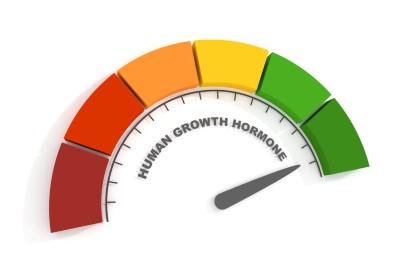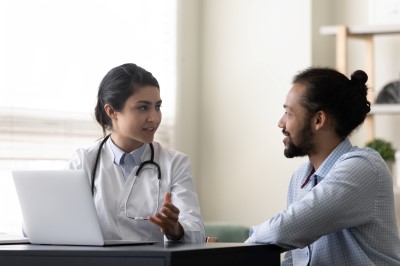Human growth hormone or HGH’s main purpose is to ensure that children grow into healthy adults of full stature, yet HGH still plays a vital role in the health and wellbeing of adults.
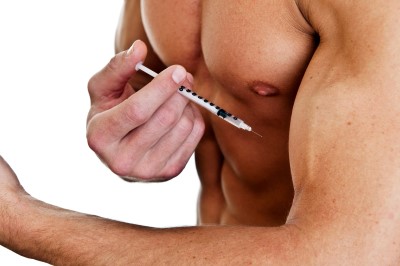 HGH is one of your body’s most important hormones. It is made and secreted by the pituitary gland and, when we are young, is mainly responsible for initiating and regulating all of the processes that allow children to grow into strong, healthy adult bodies.
HGH is one of your body’s most important hormones. It is made and secreted by the pituitary gland and, when we are young, is mainly responsible for initiating and regulating all of the processes that allow children to grow into strong, healthy adult bodies.
Even once we are fully grown, HGH remains vital to optimal health and staying fit. In adults, HGH is responsible for the health and repair of every cell in the body, which means it is instrumental in muscle strength, bone health, your immune response, sexual performance, metabolic processes, and so much more.
However, as vital as HGH is to the overall health and wellbeing of adults, the unfortunate fact of life is that HGH levels decline the older you get, which in many adults between the ages of 40 and 65 leads to a condition known as “adult-onset” or “age-related” growth hormone deficiency.
The symptoms of adult-onset growth hormone deficiency (GHD) are mitigated by prescription HGH replacement. HGH therapy is given via injections. As with any kind of hormone replacement therapy, there is a proper way and a “wrong” way to stop taking HGH.
Although it is primarily responsible for helping children to grow, human growth hormone, or HGH, is still one of the most important hormones to adults.
What Can Change in the Body When You Quit Taking HGH?
Clinical trials over and over again have proved the many benefits HGH injections can have for adults with GHD. However, as good as it is for folks diagnosed with lower than normal HGH levels, it cannot be taken “indefinitely.”
Over the course of your HGH therapy, a time will come when you will have to stop taking your injections. There can be several reasons to stop growth hormone therapy, such as:
- You are experiencing side effects
- You are not getting the results you wanted
- You have completed your prescribed program of HGH therapy

Regardless of your reason for wanting to stop taking HGH, you should never do so without consulting with your doctor. If you wish to stop because you are unhappy with your results or you are experiencing side effects, your doctor can probably resolve the issues by adjusting your dosage or brand of HGH injections. If it is time to stop taking your HGH because you have reached the end of your program, it is equally important to consult with your doctor to be given techniques and advice that can help you maintain the results you have achieved from your growth hormone therapy.
The key takeaway from this page is that deciding on when and how to stop your HGH must be a decision you and your doctor reach together.
That’s because when you have been taking HGH injections for a while, your body will have gotten quite used to getting its weekly “boost” of HGH. If you simply stop your growth hormone injections cold turkey, the shock of the sudden deprivation of HGH will likely cause your energy levels and libido to drop. You’ll likely feel irritable and maybe even depressed or anxious, and a wealth of other changes in your body.
Positive Impacts
Exactly what can occur when you stop growth hormone therapy is different for each person taking growth hormone. The factors that can impact your individual positive or negative experiences upon terminating HGH injections include:
- Your particular dosage and symptoms prior to your prescription for HGH.
- How long you have been on growth hormone therapy, and if it was your first treatment or subsequent treatment.
- How serious your growth hormone deficiency was prior to beginning treatment.
Negative Impacts
If you do not follow the advice that you have been given to help maintain the results you have achieved over the course of your growth hormone therapy program, in the worst-case scenario, you will begin to experience the many symptoms you had before you started treatment.
That may include:
- Joint pains
- Brain fog
- Depression
- Hair loss or thinning
- Sagging, dry skin
- Muscle loss
- Mood swings
- Low sex drive
- Weight gain
- Frequent illness
What Can Happen to Your Body if You Quit HGH “Cold Turkey?”
If you are on a legitimate prescription growth hormone therapy program, never, ever quit taking your HGH “cold turkey” without telling your doctor. Such an abrupt stop in taking HGH can have a negative impact on your:
- ellular activity
- Behavior
- Muscles
- Skeletal system
- Nervous system
- Immune system
- Endocrine system
- Blood sugar levels and metabolism
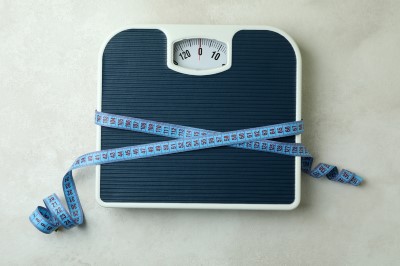 One of the most common issues that occurs when you stop HGH is weight gain. This is largely due to the impact stopping HGH has on your metabolism and your body’s ability to burn fat.
One of the most common issues that occurs when you stop HGH is weight gain. This is largely due to the impact stopping HGH has on your metabolism and your body’s ability to burn fat.
Studies have found that this occurs particularly in children who are being treated for GHD. One such study found that kids who were on growth hormone for the treatment of a particular condition known as Prader-Willi syndrome (PWS) saw dramatic increases in weight when they stopped. Body mass index went up by as much as 40%, and the increased weight was primarily in body fat.
These same studies found that in addition to weight gain, stopping HGH also leads to metabolic issues like increases in “bad” LDL levels, which can lead to obesity and diabetes.
The same kinds of weight gain, albeit somewhat less dramatic, occur in adults who stop taking HGH without a proper doctor’s supervision.
How to Avoid Side Effects when Stopping Growth Hormone
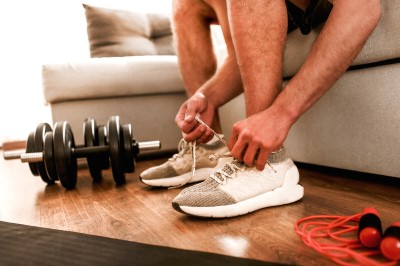 Stopping HGH injections after you have completed your prescribed course of growth hormone therapy should be looked at as a milestone and not a time to worry about slipping back into the poor condition you were six months ago, before starting your treatment.
Stopping HGH injections after you have completed your prescribed course of growth hormone therapy should be looked at as a milestone and not a time to worry about slipping back into the poor condition you were six months ago, before starting your treatment.
You should celebrate having achieved your treatment goals and you will certainly notice increased energy; you will be fitter and slimmer and be able to enjoy a more satisfying sex life.
If you want to maintain those positive results and avoid any of the unpleasant side effects that may happen once you cease taking HGH, here are some things our doctors recommend you do to maintain your results and keep your HGH levels high:
- Getting regular exercise
- Getting enough sleep (7 – 9 hours)
- Eating a healthy and nutritious diet
- Reducing stress
- Reducing consumption of alcohol
Once you have completed your HGH injections, our doctors will also recommend daily vitamins and nutritional supplements that you can take that will increase your body’s natural production of HGH.

